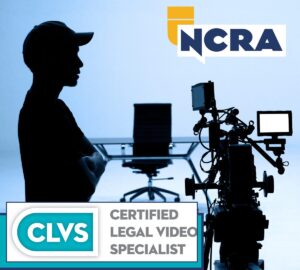By Art Richardson
Sometimes life introduces you to people and/or events that make an impression on you and you don’t even realize it until years later when you look back on the event or the person and measure it over the context of time. In my life, Ben Harold was such a man.
In 1961, right after college graduation, I had gotten married and moved my bride to Houston, Texas, where I took a job with the Harris County District Clerk’s office and where I became acquainted with the field of court reporting. At that time, there were no schools in Houston that taught court reporting, but there was an official court reporter, Ben Harold, a Merit writer, who liked to teach and consented to add me to his next class.
Ben was a World War II Navy veteran who had come to Houston after the war and founded a freelance court reporting agency. When he discovered I was studying to become a reporter, he offered to give me all of his scrap stenotype paper so I could tape it together and use it rather than buy a new pad. It saved me some money over the year and a half I studied, and I have always appreciated that encouragement and gesture. Ben was a nice guy and was typical of that generation in that he was a serious man, not one to suffer foolishness or fools; you could always trust what he said, which, again, typical of that generation, was not much — you had to really listen and draw conclusions. For instance, I didn’t know until a few years after the assassination of John F. Kennedy that Ben was his roommate in the Navy and visited with him at the Rice Hotel in Houston the fateful day before he traveled to Dallas.
Another thing about Ben was that he was originally trained as a court reporter in the Pitman theory of writing, and, later, taught himself the Stenotype machine, combining Pitman and Stenotype theory into what he called the “Harold Theory.”
A few years after I became certified and began reporting, Ben sold his freelance agency and came over to the courthouse and took over one of the district courts as the official court reporter. At that time, all of the officials had been trying to get a raise for years but had been unsuccessful. When Ben came over, he told all of them if they would each give him $500, he would get them a raise. One hundred percent of the officials gave Ben the money he asked for, and, sure enough, he not only got them a raise, he got their pay tied directly to the district judges’ pay, and every time the district judges got a raise, the court reporters did, too. All it took was hiring the right lobbyist, and Ben knew the right lobbyist.
After I had been reporting for several years, I became interested in passing the Certificate of Proficiency and Merit examinations and began studying for the next test. At that time, there were about five Merit reporters in Houston, and I wanted to be number six, so I dove into practicing. To make a long story short, I passed the Merit and became the seventh, not the sixth, Merit writer in Houston, Texas.
On the Monday following my test, I was receiving a lot of congratulations from other reporters, and during the lunch hour, I was visiting with another reporter named John Leydens in his office when Ben walked in and congratulated me. We began talking about the test. John Leydens was a Merit writer, also, and during our visit, he casually asked Ben why he had never taken the test.
Ben just kind of shrugged and said he could pass the test anytime he wanted; he just never took the time to do so. Well, this comment was like throwing down a challenge to John. John couldn’t let that remark go and so challenged Ben to write an old Merit test he had lying around the office – John was one of the reporters in Houston who gave of his time unstintingly to help other reporters upgrade their reporting efficiencies and frequently dictated the test for NSRA, the predecessor association to NCRA.
Ben accepted the challenge, and John and I marked off the test and gave Ben a two-voice 260 wpm test for five minutes, using John’s Stenotype machine, whereupon Ben immediately picked up his notes and reread it verbatim, exactly to the word, perfect! What an exhibition! I was shocked and impressed at the same time. Ben rose even higher on my “A-List” that day, and I remember him fondly.
John was also impressed and became a student of Ben’s theory. A few years later, Ben died, and John transcribed his notes on four or five appeals Ben had accumulated. John then gave the money to Ben’s widow.
For you students reading this, you, too, will meet many good reporters during your career. Some will astound you with their competency and efficiency. Learn from them! Keep the good things you learn and discard the bad things. Help and encourage others wherever you find them. Who knows, maybe one day, you could make someone’s “A-List.”
Art Richardson is vice president of business development for Stratos Legal, based in Houston, Texas. He can be reached at arichardson@stratoslegal.com











